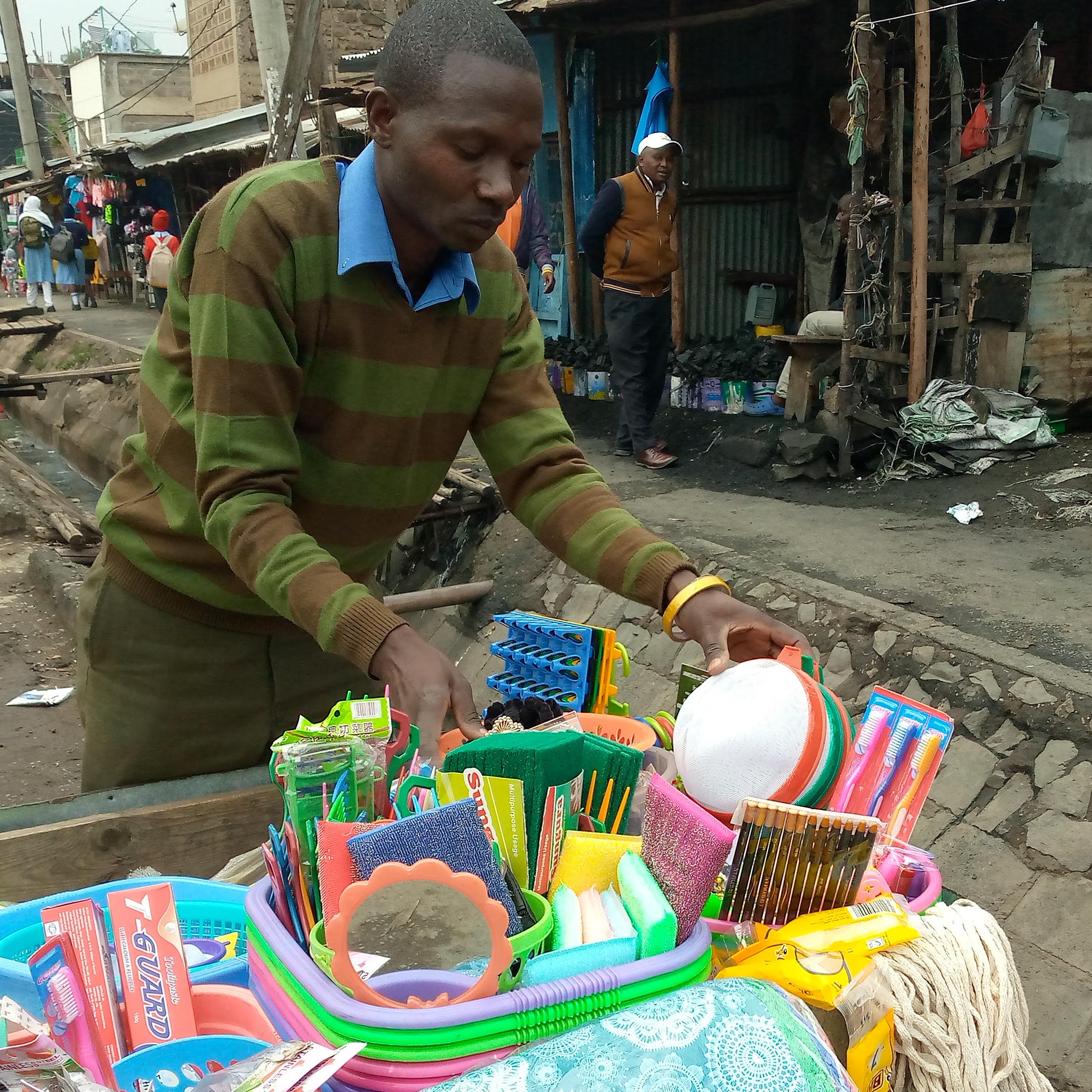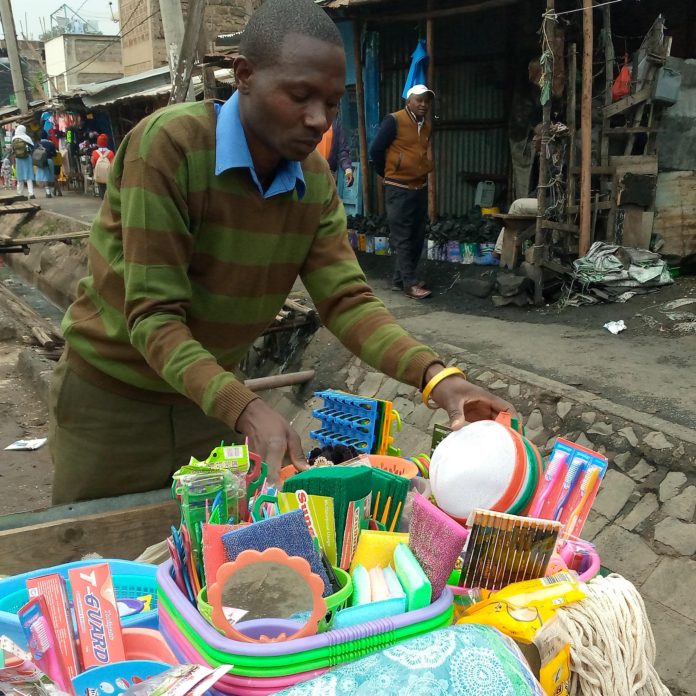By Lenah Bosibori
Nairobi, Kenya: Gibson Mongare never thought that one day he will be standing outside in hot sunshine waiting for customers to buy his household goods.
His life has taken a different turn for him after the covid-19 pandemic hit the world.
He lost his job as an engineer at a paper manufacturing company in Nairobi’s industrial area.
Trained as a Technical engineer from Gusii Institute of Technology (GIT), Mongare is now a full-time hawker in Nairobi’s informal settlement – Mukuru.
Mongare a middle-aged father of two lost his job as a machine operator at Karatasi Limited Kenya one of Kenya’s biggest stationery industries that prints all writing materials targeting school-going children.
“My life has been always on suits, I never thought that one day I will be doing such kind of business in Kenya’s biggest city.” Mongare says.
He adds that he never thought that such a small business will be bringing food on the table for his family. “Many people lost their jobs, others shifted to their rural homes, I said I will try this small business since it needed small capital to start,” he adds.
Mongare says that even if the business has so many challenges, he manages to put something on the table for his family.
On a good day, he can make between Kshs 600-800 depending on the weather which he says can cater to his daily expenses and save some.
“I started this kind of job in May immediately after my position was declared inactive at Karatasi Industries, at first it was a challenge because people used to see me in suits and now pulling this wheelbarrow, they wonder what happened,” adds Mongare.
As compared to other businesses that owners open in the morning, Mongare starts his business at four in the evening.
“I usually target people coming from their workplaces because in the evening people have some time to look at my products compared with morning hours when they are in a rush for their jobs,” he adds.
Some of the goods he sells are; knives, spoons, sieves, basins, sufurias, plastic cups, food dishes, toys for kids, etc.
While working as a machine operator at Karatasi, Mongare used to earn well, but since COVID-19 hit, he only gets a small portion of what he used to earn.
He says that women have been his biggest customers since they don’t bargain a lot.

Challenges
Mongare says that he has seen many challenges to his small business. He says that sometimes rain has been his biggest challenge as it comes without alerting.
“Nairobi rains are very devastating, pulling all these products on a wheelbarrow gives me hard time to hide from the rains, the rain ends up messing with some of the goods I sell, I am therefore forced to either use them or sell at a through away price” he adds.
He hopes to get a shop where he can settle down due to the expansion of his business. “The wheelbarrow has become too small, I have to fix everything on top of the other,” he adds.
One of his biggest shame he will never forget is when the wheelbarrow broke down because it was heavily loaded.
“Can you imagine everything falling down in the middle of the road, remember cars are coming and matatu people can’t wait, they can even step on them?” he posed.
He hopes that as schools show a sign of reopening, it will open a way for him to return to his work.
“If my job returns, I will look for someone to look after this business and go back, I had taken loans from my workplace that needs to be paid back, I still look forward to normalcy,” he says.














